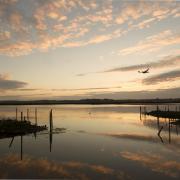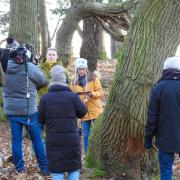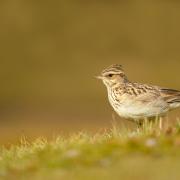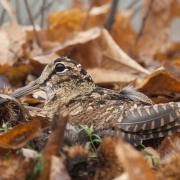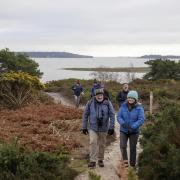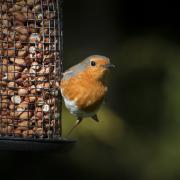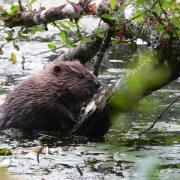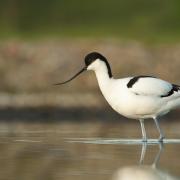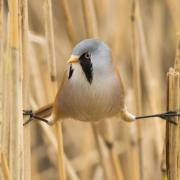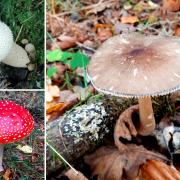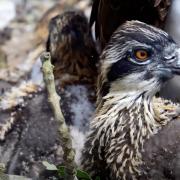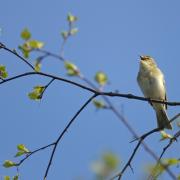We’ve teamed up with Dorset Wildlife Trust for the #GetDorsetBuzzing campaign to provide you with plenty of gardening tips to help pollinators

The longer warmer days means that it’s time to get busy in the garden. Spring is a great time to witness wildlife visiting your garden for food, water, shelter and, most importantly, a place to breed.
Newly awakened queen bumblebees and female solitary bees will be looking for a place to establish a nest. This can be in the ground such as old mouse nest (for bumblebees) or in aerial locations such as in bee homes or old beetle holes (for solitary bees).
Many butterflies and moths will be merging in April. The vivid yellow brimstone is one of the first on the wing as they overwinter as adults, so they are ready to find a mate straight away.
A wildlife-friendly garden filled with a wide variety of nectar and pollen rich plants from early spring to winter will provide that all important and easily accessible food source for them. It will also encourage pollinators to make their nests here and raise the next generation.
Get Dorset Buzzing roadshows in April
This spring Dorset Wildlife Trust is taking their pollinator expertise around Dorset in a series of roadshows where you can sign up for the Get Dorset Buzzing campaign and get free advice to help you bring more pollinators in to your garden. You can also play the Pollinator Wheel of Fortune or the Bee Buzz wire game too!
Join in with our hashtag on social media! #GetDorsetBuzzing
6-14 April: Get Dorset Buzzing Roadshow at the Chesil Beach Centre (10am – 5pm).
18-22 April: Get Dorset Buzzing Roadshow at Lorton Meadows Conservation Centre near Weymouth (10am – 4pm).
Top tips
1. It’s worth mulching your borders now to help lock in moisture and slowly feed your plants nutrients over the growing season. You can use various materials to do this including bark chippings, well-rotted manure or leaf mould.
2. With solitary bees on the hunt for nest bites, a well-positioned bee hotel can make a big difference. The holes, whether they be bamboo or drilled, should be no more than 1cm diameter. The hotel should be attached securely to a structure in full sun and preferably near to pollen and nectar rich plants.
3. If you have a small garden then planting climbers such as honeysuckle or ivy can add structural diversity without taking up precious room on the ground – plus they will be a hit with moths and butterflies. Putting up a trellis that is set away from a wall or fence will, in time, create nesting space for birds to use as the climbers grow.
4. This is the last chance to sow wildflower seed mixes this month. Annual wildflower mixes will bring a splash of colour this summer, whereas perennial mixes will flower the following year. So choose your mix, prepare your peat free soil and sow.
Need more advice?
The Get Dorset Buzzing Pollinators leaflet has practical tips and advice on how to create a successful wildflower patch.
More at wtru.st/gdb1 where you can also sign up.




